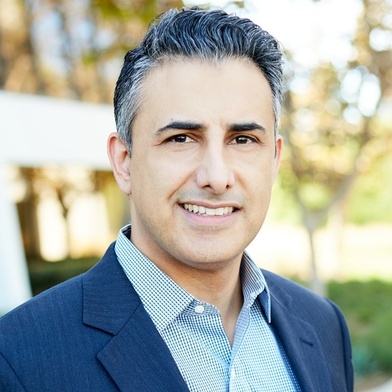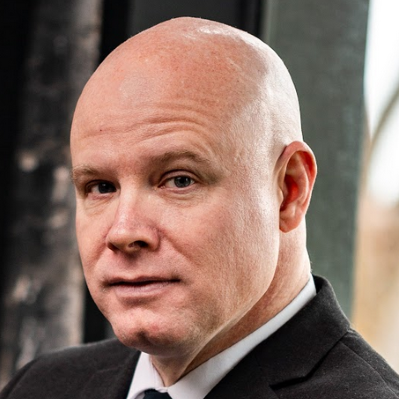Grants Pass Patent Attorneys & Lawyers
How it Works

Ross Brandborg

Kanika Radhakrishnan

David Yamaguchi

Ali Shalchi

Eric Alspaugh

Joel Douglas

Anthony Whittington, Jd/Mba

Gene Rhough

Niq Howard

Ken Emanuelson
Grants Pass Patent Lawyers
Why use UpCounsel to hire a Grants Pass Patent Attorney?
Average experience
You always get experienced professionals and high caliber work.
Faster
Your work gets done quickly because professionals are always available.
More cost effective
We use technology to cut traditional overhead and save you thousands.
UpCounsel has been talked about in:
Legal Services Offered by Our On-Demand Grants Pass Patent Attorneys
Our experienced Grants Pass patent attorneys & lawyers represent individuals and businesses throughout the world with domestic and foreign patent preparation and prosecution matters. They have extensive experience handling applications from nearly every sector of technology, including biotechnology, computer hardware and software, communication networks, internet systems and methods, automotive, medical equipment, construction technology, consumer electronics, and clean technology research and development.
Our patent attorneys are of the most highly trained in the industry, requiring a scientific background, and passing a second level of testing known as the Patent Bar Examination. Thousands of patents are submitted to the patent office every day and a patent committee reviews each patent for its validity. The process requires that correctly drafted documentation present a clear case for the novelty of the invention, which is best made by a patent attorney with a higher education background in your industry.
Our Grants Pass patent attorneys & lawyers can help you file a provisional patent, which lasts for 1-year and allows you to immediately begin using/manufacturing your invention with the confidence that your idea is protected. These types of patents are great if you think your idea will change a lot over the next year before you file a (non-provisional) patent. These patents are easier to obtain and are less expensive but you should have a patent lawyer review your provisional patent application to insure that you are meeting your objectives when you file your patent.
Improve Your Legal ROI with Affordable Patent Attorneys that service Grants Pass, OR.
What Our Customers Have to Say
"UpCounsel gives me access to big-firm lawyers minus the big-firm price tag. I work with several attorneys on the platform and there are never surprises...I always receive quality legal work at competitive rates that larger firms simply cannot match."
"Every startup needs to know about UpCounsel. We found great attorneys at great prices and were able to focus our resources on improving our business instead of paying legal bills."
"Before UpCounsel it was hard for us to find the right lawyer with the right expertise for our business. UpCounsel solves those problems by being more affordable and helping us find the right lawyer in no time."
This is the most recent 7 reviews for Patents attorneys in Oregon

File Utility Patent
"We had a tight timeline but Kanika got it done."
Wesley B
.
Beaverton,
OR,
over 4 years ago

File Utility Patent
"Richard was just the person I needed. He has created a patent application from my patent pending for my invention."
Matthew P
.
Beaverton,
OR,
about 6 years ago

Provisional Patent Services
"Excellent service, first rate on every account"
Jeffery T
.
Portland,
OR,
over 6 years ago

Provisional Patent Services
"Seth worked on my provisional application. He provided the necessary guidance and produced good patent claims based on provided documents. He guided me well through the documents that I had to submit."
Vojtech H
.
Beaverton,
OR,
over 6 years ago

Design Patent Filing
"Matt was a pleasure to work with and really helped with what I needed fast."
Robert K
.
Portland,
OR,
about 9 years ago

Utility Patent Filing (Prosecution)
"Awesome experience. Great communication and great results!"
Chris D
.
Medford,
OR,
almost 10 years ago

Software Provisional Patent Services
"We are very pleased with the work Kanika did on our software patent. Will use them again"
Joe S
.
Portland,
OR,
over 10 years ago
Related Articles
Key Takeaways:
- Comprehensive Protection: Intellectual property law covers copyrights, patents, trademarks, trade secrets, geographical indications, and more to protect creations and innovations.
- Economic and Legal Significance: Protecting intellectual property fosters economic growth, encourages innovation, and ensures businesses maintain competitive advantages.
...
Read MoreKey Takeaways
- The Patent Law Treaty (PLT) standardizes and simplifies the formal procedures for filing patent applications among member countries.
- It minimizes administrative burdens by harmonizing filing dates, priority restoration, and revival processes across jurisdictions.
- The PLT complements other international agreements like the Patent Cooperation Treaty (PCT) and the Hague Design Treaty.
- Benefits include faster filings, reduced legal uncertainty, and enhanced access to patent protection for inventors worldwide.
- Critics argue that standardization may favor developed nations, creating challenges for emerging economies with limited patent infrastructure.
...
Read MoreKey Takeaways
- Ex parte reexamination allows the USPTO to re-review an issued patent based on prior art, even years after issuance.
- A substantial new question of patentability (SNQ) must be raised, usually based on patents or printed publications not previously considered.
- Proceedings are generally completed within two years and involve only the patent owner and USPTO.
- Benefits include reduced litigation costs, increased investor confidence, and the ability to challenge questionable patents anonymously.
- Drawbacks include limited participation for third-party requesters and the possibility of strengthening the challenged patent.
...
Read MoreKey Takeaways:
- A patent license allows a patent owner to grant rights to another party to use, make, or sell an invention.
- Types of patent licenses include exclusive and non-exclusive licenses, each with distinct rights and obligations.
- Advantages of patent licensing include revenue generation, risk mitigation, and access to broader markets.
...
Read More